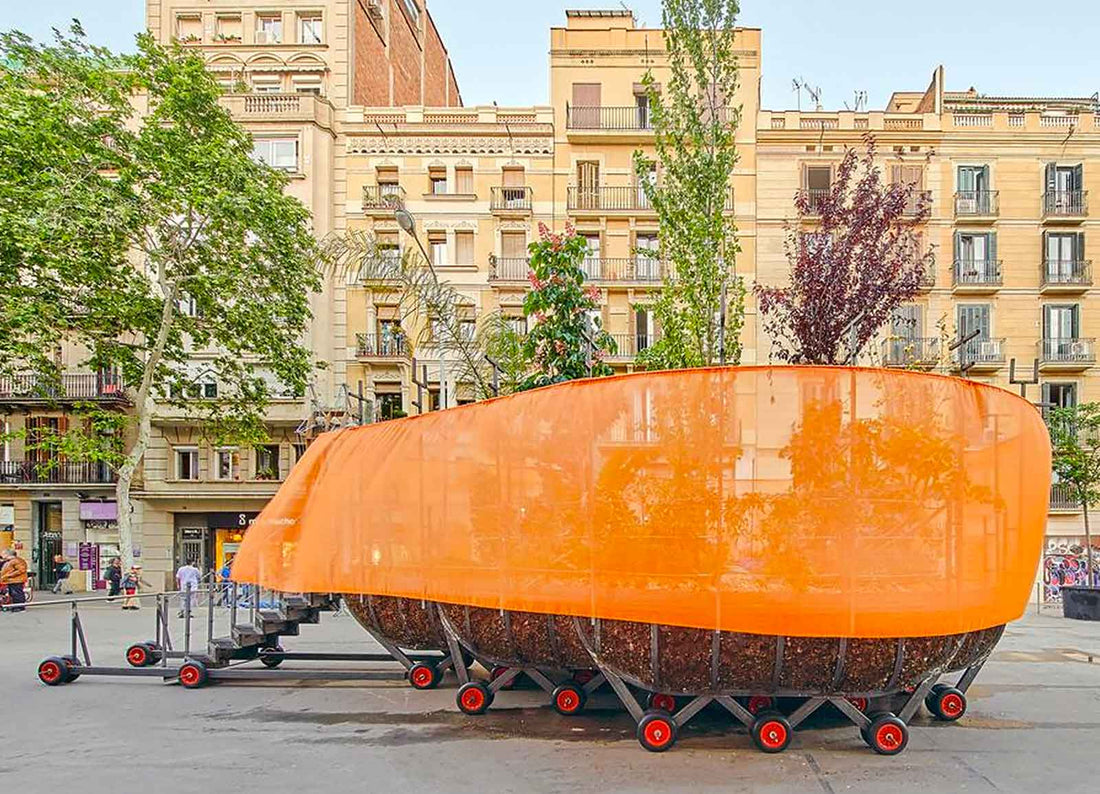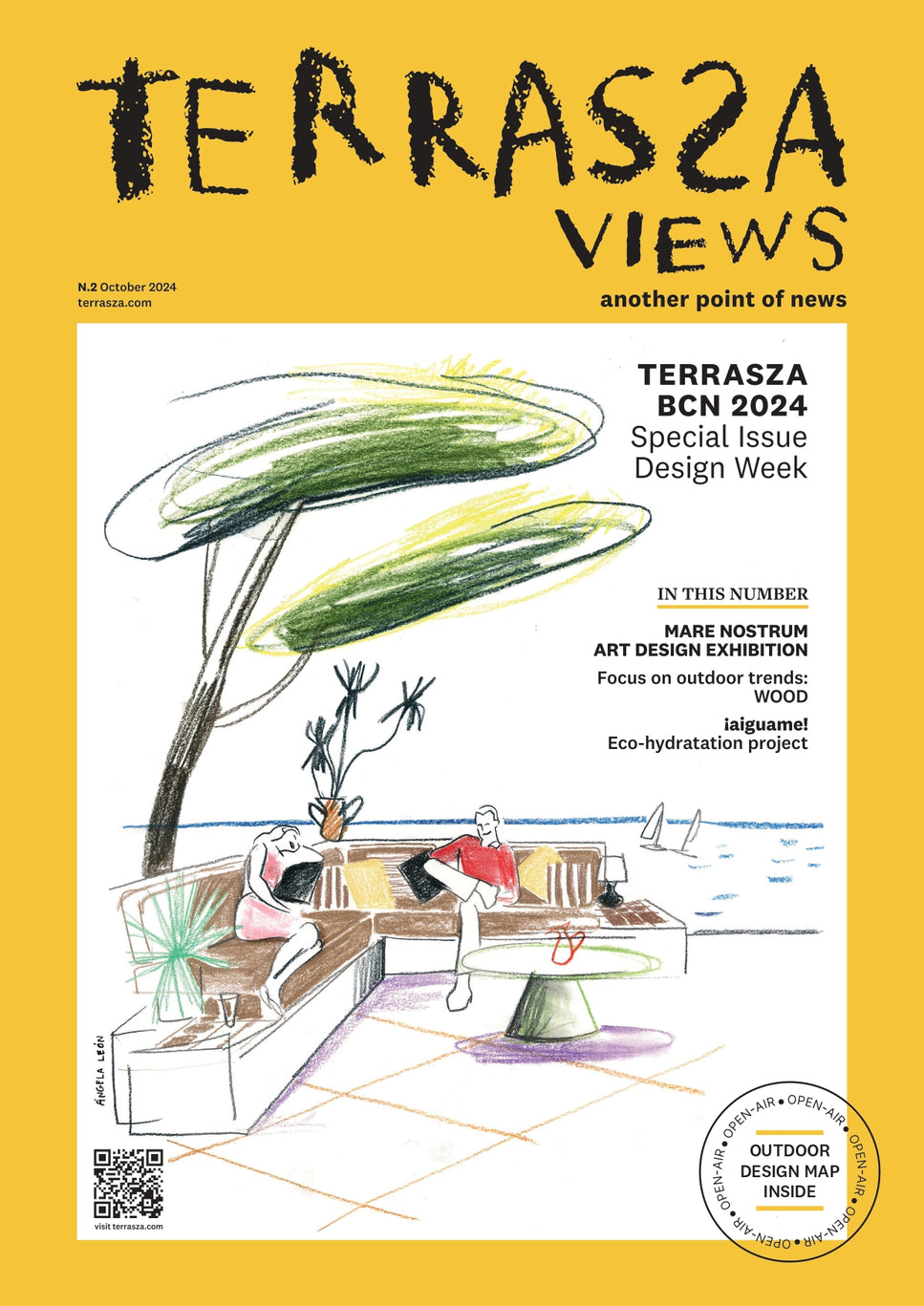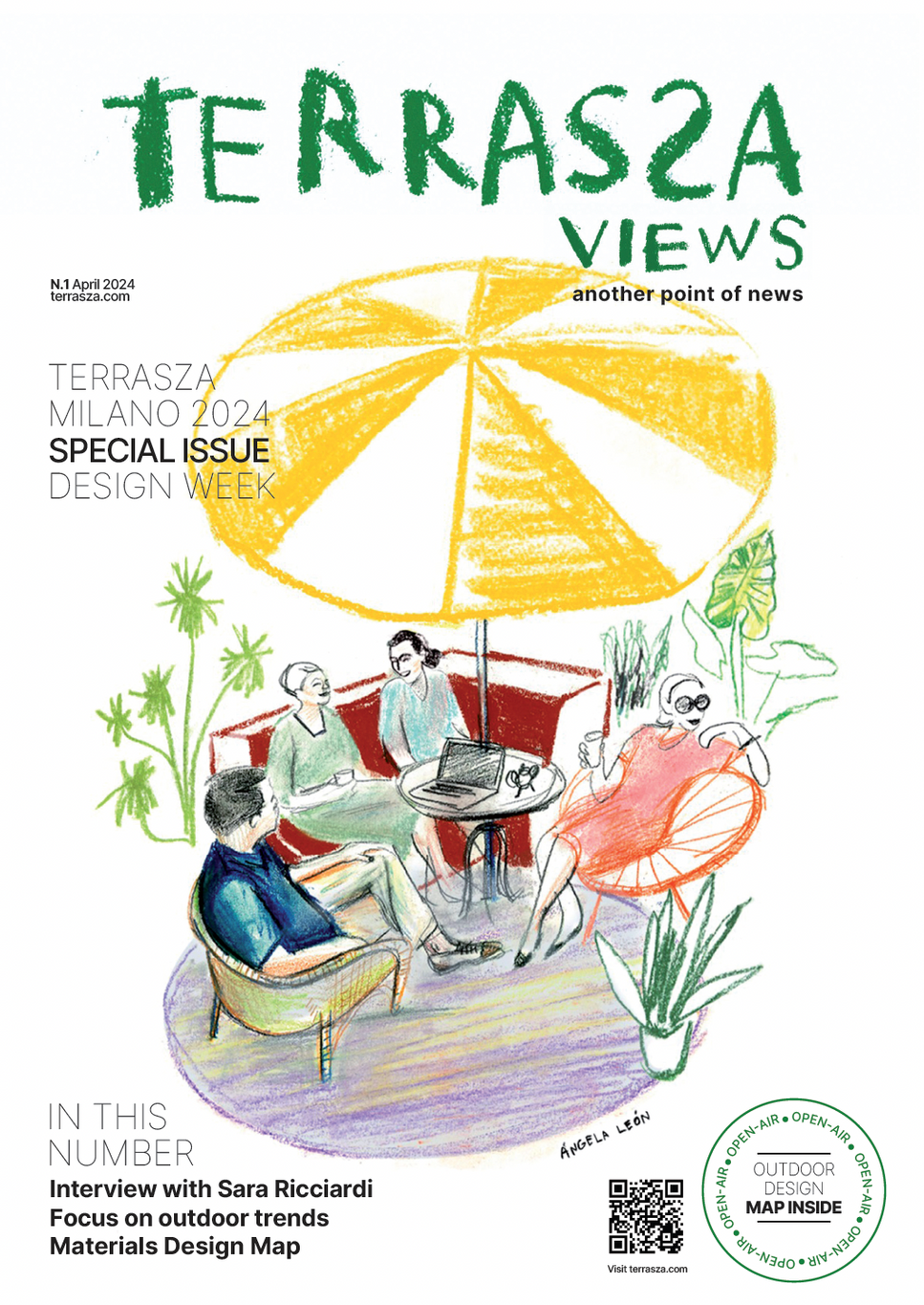ARCA portable garden is one of the finalists of the 65th edition of the FAD Awards for Architecture and Interior Design whose ceremony will take place on October 19, 2023.

For Ephemeral Interventions Category, the jury of ARQUIN-FAD, the FAD Interdisciplinary Association of Space Design and promoter of the awards, chose -among 35 finalists and 576 works submitted to the different categories of the awards- the project created by LEA Atelier for the landscape and architecture and design studio TAKK, in collaboration with Roger Monfort, Berta Ribaudí, Marcos Romero.

The installation was created in 2022 for MODEL, Barcelona Architectures Festival curated by Eva Franch i Gilabert, José Luís de Vicente, Beth GalÍ. ARCA portable garden is now part of the exhibition "The Best Design of the Year" at the Disseny Hub, Barcelona until January 7, 2024.

Arca is a mobile device in the form of a reservoir that could be home to a multitude of trees, plants, shrubs, and insects capable of mitigating the effects of global warming or stimulating biodiversity. Some of the guests of the installation were species capable of absorbing ten times more CO2 than usual, edible wild species that open up new possibilities in our food sovereignty, or species that are capable of summoning other agents through the establishment of relationships of mutualism, tenantism, or symbiosis.

“The planet's biodiversity is reduced year after year in such a way that up to a million species could disappear in the coming decades. Cities are the focus of this process mainly due to the concentration of CO2 emissions, the heat island effect, and the limited area of green areas, whose species are often selected with merely aesthetic or functional criteria, causing a homogenization of urban species and greater insecurity about ecosystems. Our proposal reflects on possible models of public space capable of helping to reverse this situation.” stated Mireia Luzárraga and Alejandro Muiño, founders of TAKK based in Barcelona.
Their projects investigate how architecture can catalyze the development of more democratic lives through the incorporation of feminist thought, ecology, and politics into spatial practices.

During the festival, this artifact moved through the streets of Barcelona acting as a pilot project of what could happen: portable gardens that move to the areas of greatest concentration of pollution, new green spaces that are temporarily placed in highly densified areas, or open classrooms for interspecies botanical knowledge.

“The project was built from the temporary, material, and political possibilities of the present but to imagine future scenarios that are as necessary as they are desirable.” conclude Mireia and Alejandro.
Photo credits: José Hevia





